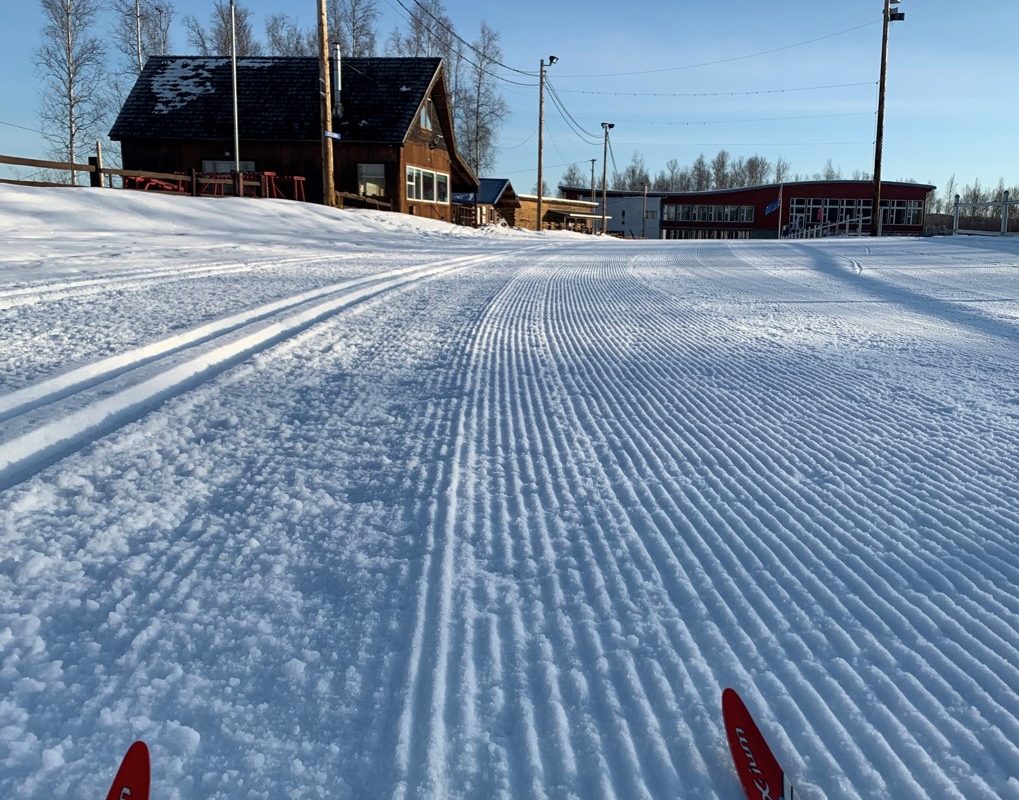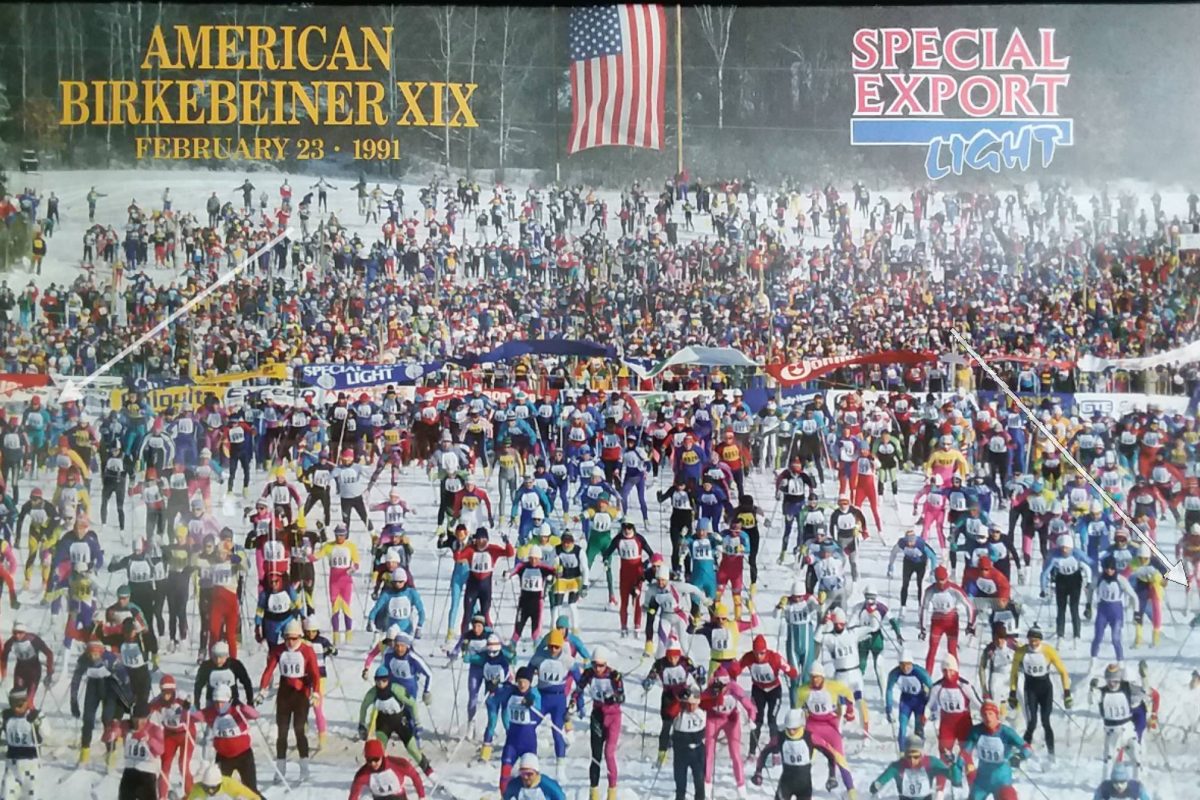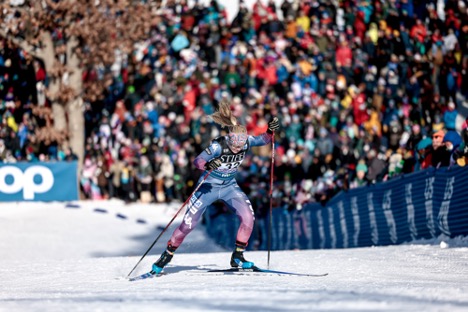
Two-thirds of the way through Sunday’s World Championships pursuit, Alex Harvey was taking a page out of Johan Olsson’s book.
Harvey, the 22-year-old Canadian, had launched a surprise, solo attack reminiscent of the move made by Olsson, a Swede, in the same race at the Vancouver Olympics last year.
The Swedes took two medals in that event, with Olsson getting bronze. And for a while, it looked like the Canadians were on their way to a similar performance. Harvey’s teammate Devon Kershaw was able to sit comfortably in the pack and save energy for the finish, while Ivan Babikov went to the front and tried to slow things down.
“I tried to work as a teammate,” Babikov said. “When I saw he’s trying to go, I’m like, ‘okay—I’ll try to hold the pack back.’”
But with one 3.75-kilometer lap left in the 30-kilometer race, Harvey’s legs cramped up. Then, Kershaw’s chances evaporated, when his charge for the line came too early, and fizzled. At the end of the day, the Canadians had to settle for three in the top 15—respectable, but not the hardware they’re looking for in Oslo.
“Today was, for sure, a good medal opportunity, but we’re going to get something before we leave here,” said Justin Wadsworth, the Canadian head coach. “It’s just good those guys are fighting again.”
None of the Canadians contested the sprint for the medals, but they had Kershaw, Harvey, and Babikov in the lead group until the closing kilometers, and the three ended up ninth, 12th, and 15th, respectively. George Grey was the country’s other finisher, in 46th.
For the Canadians, the day’s results were heartening, even if the final standings weren’t quite enough to leave them content.

Kershaw’s performance suggested he’s returning to the form that helped him to four podiums at the Tour de Ski in January, while Babikov is starting to find the fitness that propelled him to a top-five finish at last year’s Olympics. And Harvey’s breakaway was just another reminder that he has barely plumbed the depths of his talents—the effort coming, as it did, just one month after his victory in the same event at the U-23 World Championships.
How well is Harvey going right now? He said that his move on Sunday, on a climb 18 kilometers in, wasn’t even a concerted effort.
“I was just skiing my own pace at the front,” he said. “I felt I felt really easy in the group, and my skis were fast. I didn’t really attack. Everyone switched to offset [V1], and I just kept one-skating [V2ing], and then I had a gap—so then I decided to try to go.”
The pace, Harvey said, wasn’t too hard to maintain. He wasn’t filling up with lactate at the tops of hills—the pace was steady. He looked controlled, relaxed and smooth, much like he did when he won in Estonia.
The gap went up and down—at one point going all the way up to 15 seconds—but then, around the 25-kilometer mark, it started dwindling. Harvey was getting cramps, painful ones, in his inner thighs.
“I couldn’t hit a flat ski, and I almost crashed on a downhill,” he said, “It went from like 100 percent to 50 percent…it was really hard to ski.”
With a fresh Tord Asle Gjerdalen (NOR) at the front of a 25-strong chase pack, Harvey didn’t stand a chance. He was swallowed up as the leaders left the stadium for their last lap, to the roar of a rare partisan crowd that was pulling for Gjerdalen and his teammate, eventual winner Petter Northug.
Harvey was pale, spent, and “really disappointed” after the race, and he said that he didn’t know what went wrong. He said he had taken feeds every lap, for the entire race, and that he’d never had cramps like this before.
His teammate Kershaw hypothesized that perhaps Harvey was “a little too experienced to hold a move like that.” But, on the other hand, Kershaw said, it was “good on him to try.”
“At 22 years old, I don’t see it as a big mistake,” Kershaw said. “Alex could have been world champion today, had he had a bit better legs—it’s reality.”
As for his own race, Kershaw said that he probably didn’t have the fitness Sunday to top Northug—but he also said that his performance was a heck of a lot better than his efforts from the last two weeks.
In the World Championships tune-up races in Drammen last weekend, Kershaw was no better than 26th, and in Thursday’s skate sprint in Oslo, he was 31st—just outside the heats in a race he’d won at the Tour de Ski.
“I was super-nervous today,” he said. “Things have been going, just, so terribly the last 10 days or so. I wanted to feel better.”
On Sunday, Kershaw said he was helped by a relatively tame classic leg, then felt stronger and stronger as he sat in the

pack during Harvey’s breakaway.
As the racing really ratcheted up with a couple of kilometers to go, Kershaw made his own move, hitting the front and throwing in a few hundred meters of hard skating. It wasn’t enough to shake the group, though, and then Kershaw said that he “died, a bit,” heading into the last uphill, which left him out of position.
In retrospect, Kershaw said, the move was too early.
“I thought I could hold them—I felt super-controlled and comfortable the whole time,” he said. “I played it like Northug plays it, I think—just, I was slower.”
While Kershaw was disappointed with the result, he said he was still happy “with the way his body reacted.”
As Wadsworth put it, the result, and the sensations, should serve as a huge mental boost—potentially restoring Kershaw’s faith in himself to the level it was in January.
The premature attack on Sunday, Wadsworth said, “maybe showed that [Kershaw’s] confidence wasn’t like it was in the Tour.”
“I think if today’s race would have been in the Tour, he would have waited ’til the last uphill—and he knew that,” Wadsworth said.
Babikov, meanwhile, skied to his second-best result of the year, and he said that he was especially pleased with his classic leg—given that he’d struggled with the technique earlier in the season.
Up until the closing kilometers, Babikov was in the pack, but then lost contact with the leaders when the going got tough, and he couldn’t fight through traffic to latch back on.
“Just positioning,” he said. “We didn’t expect it was going to be so crowded toward the finish.”
Wadsworth said that all four of the Canadians from Sunday would start in Tuesday’s 15 k, with the exception of Grey. A decision hasn’t been made for the last spot; it could be Grey, Len Valjas, or Stefan Kuhn, Wadsworth said.
Nathaniel Herz
Nat Herz is an Alaska-based journalist who moonlights for FasterSkier as an occasional reporter and podcast host. He was FasterSkier's full-time reporter in 2010 and 2011.




One comment
SKIFAN
March 3, 2011 at 11:11 pm
Great job team! Babs coming back.